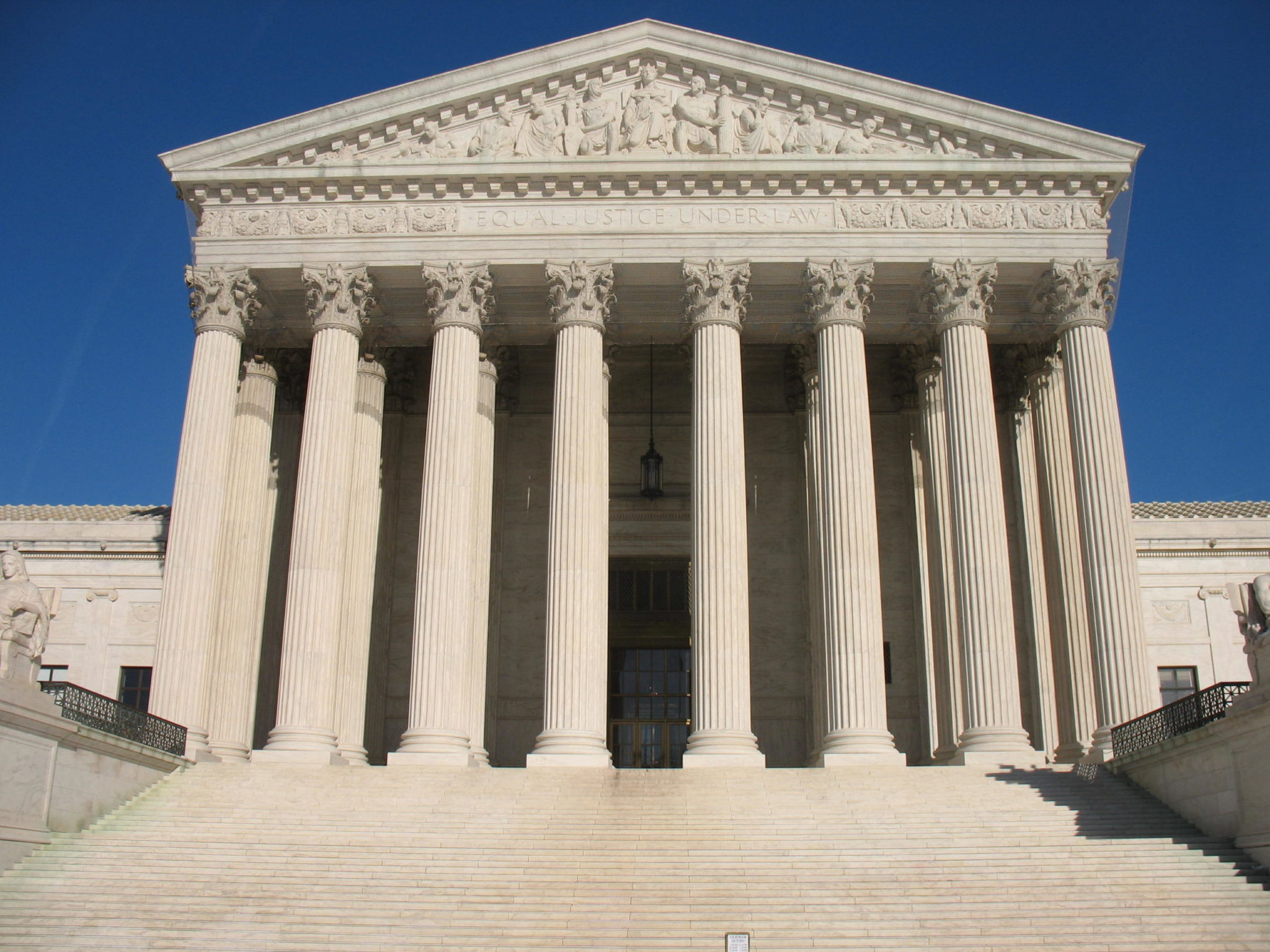Yale throws its support behind affirmative action in ongoing Supreme Court cases
Yale filed an amicus brief in support of Harvard University and the University of North Carolina system as the Supreme Court prepares to hear ongoing challenges to the universities’ affirmative action policies.

Wikimedia Commons
Yale recently took steps to defend race-conscious admissions ahead of a Supreme Court decision that could determine the fate of affirmative action.
The University and other peer institutions submitted an amicus curiae brief in August, lending support to affirmative action in a pair of cases that will be argued in the Supreme Court next term. The cases, which are likely to be decided in May or June 2023, will determine whether or not universities may continue to consider race in admissions.
Parties who are not directly involved in a case — but have a special interest in its outcome — may write an amicus, or “friend of the court” brief, to present new knowledge and arguments to the court. While a single brief may not alter a ruling, precedent shows that a collective may have sway. In Grutter v. Bollinger, a 2003 case that upheld affirmative action at the University of Michigan, the Supreme Court seemed to be influenced by briefs filed by military and business interests in support of the practice.
“Diversity fosters a more robust spirit of free inquiry and encourages dialogue that sparks new insights,” the Yale joint brief reads. “Diversity encourages students to question their own assumptions, to test received truths, and to appreciate the complexity of the modern world.”
In the brief, Yale joined 14 other schools — Brown University, The California Institute of Technology, Carnegie Mellon University, Columbia University, Cornell University, Dartmouth College, Duke University, Emory University, Johns Hopkins University, Princeton University, the University of Chicago, the University of Pennsylvania, Vanderbilt University and Washington University in St. Louis — to affirm the importance of diversity and the right of colleges and universities to consider race in admissions. The pair of Supreme Court cases implicate Harvard University and the University of North Carolina specifically for their admissions practices but have the potential to affect schools across the country.
The first Yale class that could be affected by an anti-affirmative action ruling would be the class of 2028, set to first matriculate in fall 2024, said Jeremiah Quinlan, dean of undergraduate admissions and financial aid.
But if affirmative action does fall, Quinlan and Moira Poe, senior associate director of admissions for strategic priorities, said that Yale will pursue other paths to cultivate a diverse student body.
“We are not making any assumptions about the Court’s ruling,” Quinlan wrote in an email to the News. “But we are being prudent and planning for possible limitations on our ability to consider race and ethnicity as part of our holistic review of each applicant.”
The plaintiff in the ongoing Supreme Court cases is Students for Fair Admissions, a group that opposes the use of race in admissions. The group first sued Harvard University and the University of North Carolina in 2014, claiming that Harvard was discriminating against Asian American students and that the University of North Carolina was discriminating against Asian American and white students in admissions. The outcome of the case could undermine the legal basis for affirmative action, which some legal experts argue was SFFA’s motive for bringing the suits.
SFFA also sued Yale in 2021, alleging similar discrimination in its admissions practices. The lawsuit has been on hold pending the resolution of the ongoing Supreme Court litigation.
SFFA founder Ed Blum called the current state of the Supreme Court lawsuits “common knowledge” and declined to comment further. SFFA lawyer Adam Mortara also declined to comment.
Lower courts ruled in favor of the universities in 2019 and 2021, allowing them to consider race in admissions so long as they do not employ racial quotas. The lower court decisions are consistent with the 1978 Regents of the University of California v. Bakke Supreme Court decision.
On July 22, the high court decided to hear the Harvard and UNC cases separately, reversing its January announcement to take up the suits together.
Derek Black, a constitutional law professor at the University of South Carolina and expert on education policy, said the cases were cleaved because of the differing legal standards applying to private and public universities.
All institutions of higher education — public or private — must avoid racial discrimination and adhere to Title VI of the Civil Rights Act of 1964 if they want to receive federal funding. But because UNC is a public university, it must also obey the equal protection clause of the Constitution, and its admissions practices can be evaluated with the clause in mind.
Black and Peter Schuck, a former professor and deputy dean at Yale Law School, said that Harvard and UNC are also different universities with different admissions systems, which could explain the splitting of the cases.
But the disparate legal standards are not the only explanation.
Linda Greenhouse LAW ’78, clinical lecturer and senior researcher at the law school and former New York Times Supreme Court reporter, said that the “constitutional and legal framework of the two cases is the same” and that the “only explanation” for splitting the cases centers around new justice Ketanji Brown Jackson.
If the cases are separate, Jackson, who recused herself from the Harvard case due to her membership on the Harvard Board of Overseers, could still rule on the UNC suit, which would add another left-leaning voice to the majority conservative bench.
Ketanji Brown Jackson was confirmed as a Supreme Court Justice on April 7.







